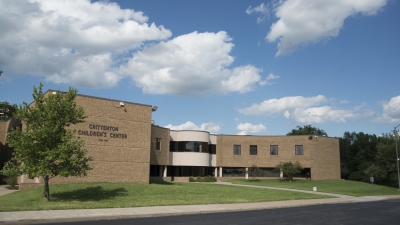Children who enter our residential program have continued to display high-risk behaviors despite a variety of previous treatment efforts.
The average stay for children in intensive residential care is three to six months. Our staff psychiatrists are on-site seven days a week and a registered nurse provides care all hours of the day and night. Children will attend on-site school classes offered through the Hickman Mills School District.
Crittenton's team of mental health professionals creates a personalized care plan to meet each patient’s unique needs. Available treatments and therapies, include:
- Individual and group therapy using evidence-based care models
- Chemical dependency prevention and recovery groups
- Specialized shorter-term intensive treatment for military dependents
- Expressive therapy
- Spiritual wellness
- On-site medical and laboratory services
- Enhanced individualized education to address academic deficits
- Career counseling
To request an evaluation for intensive residential care, call 816-765-6600.
